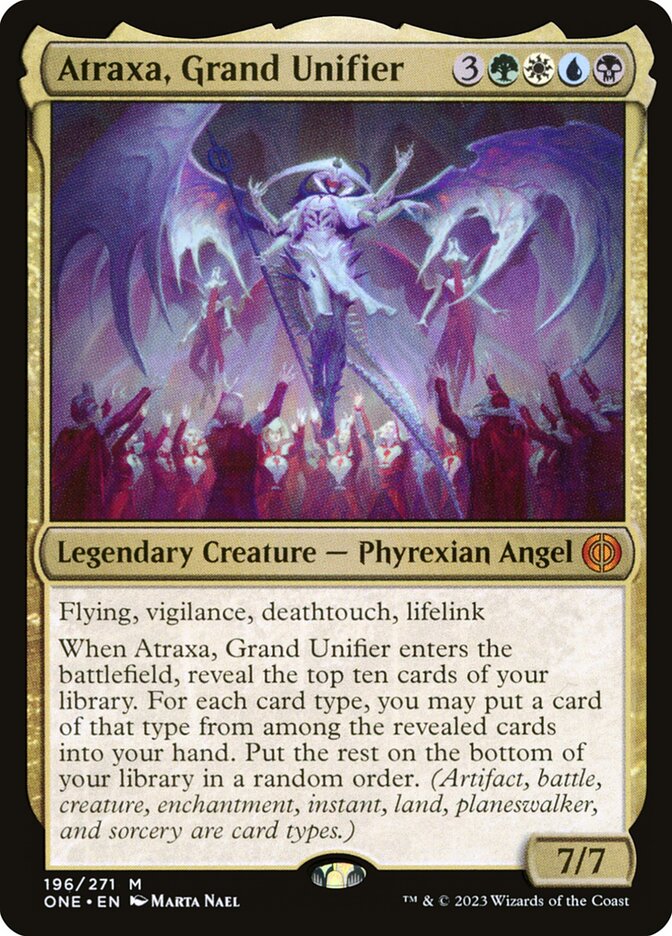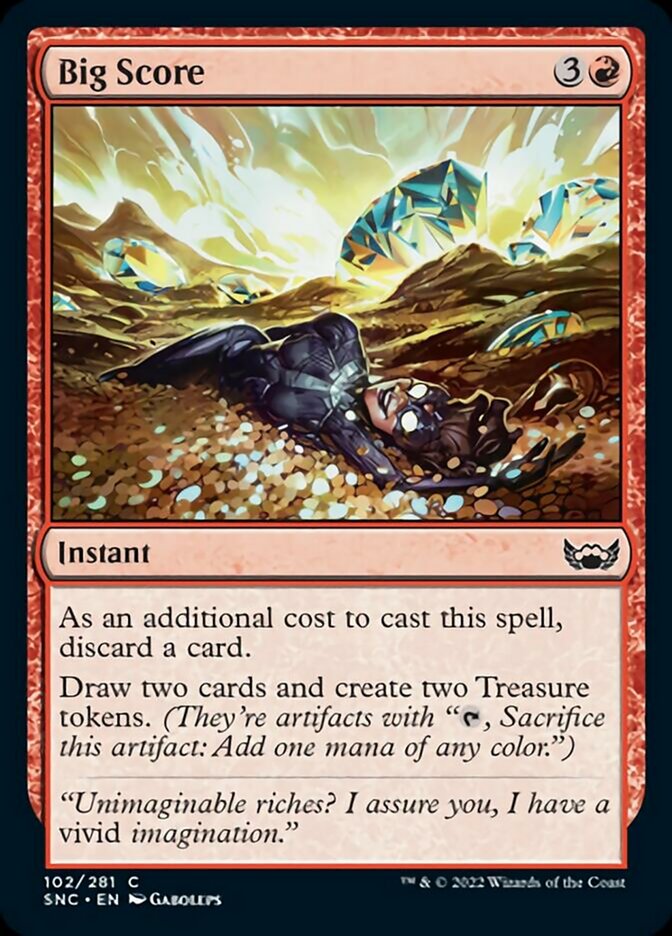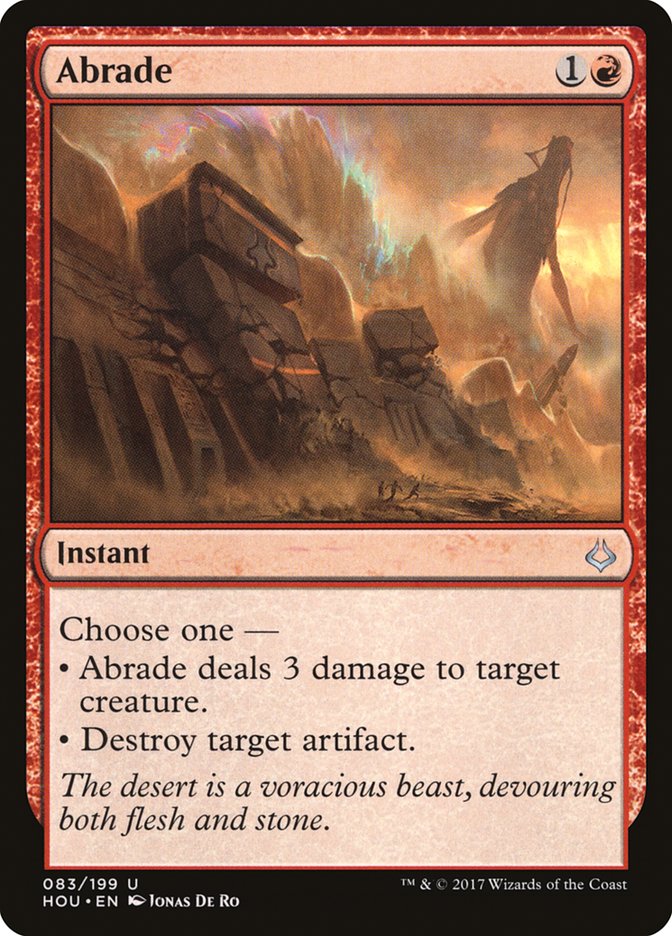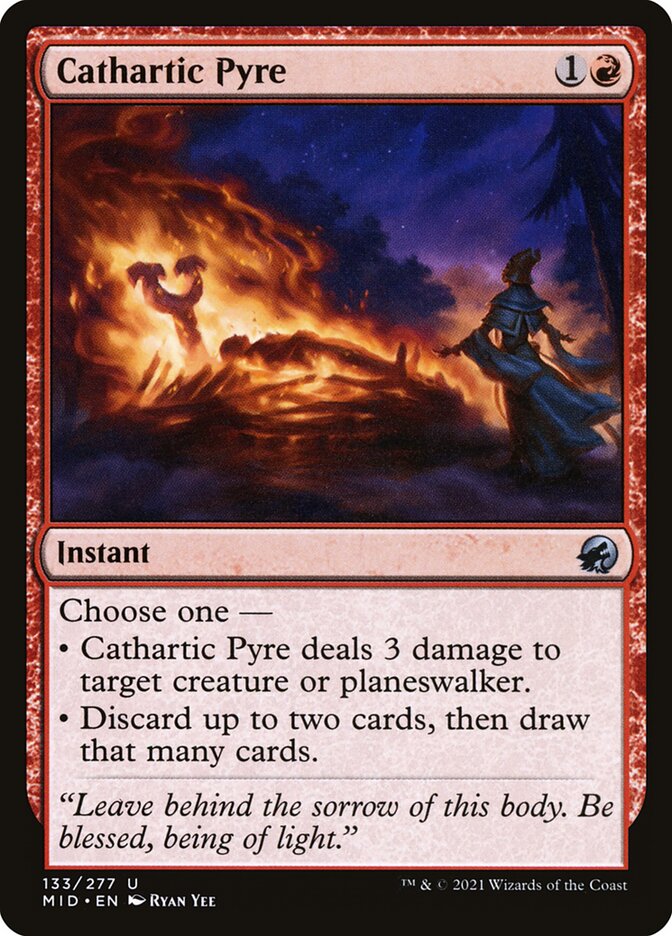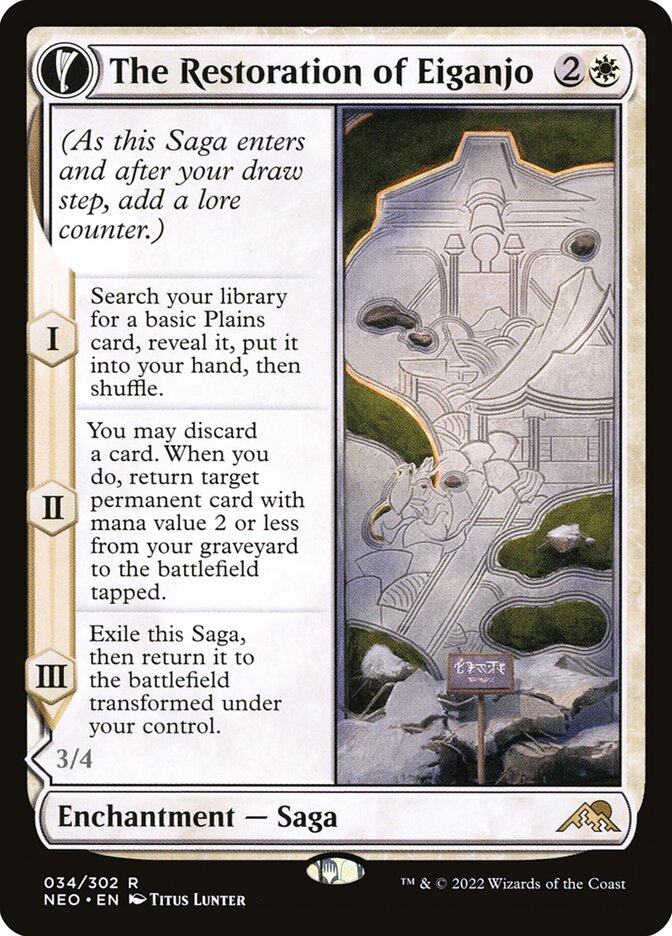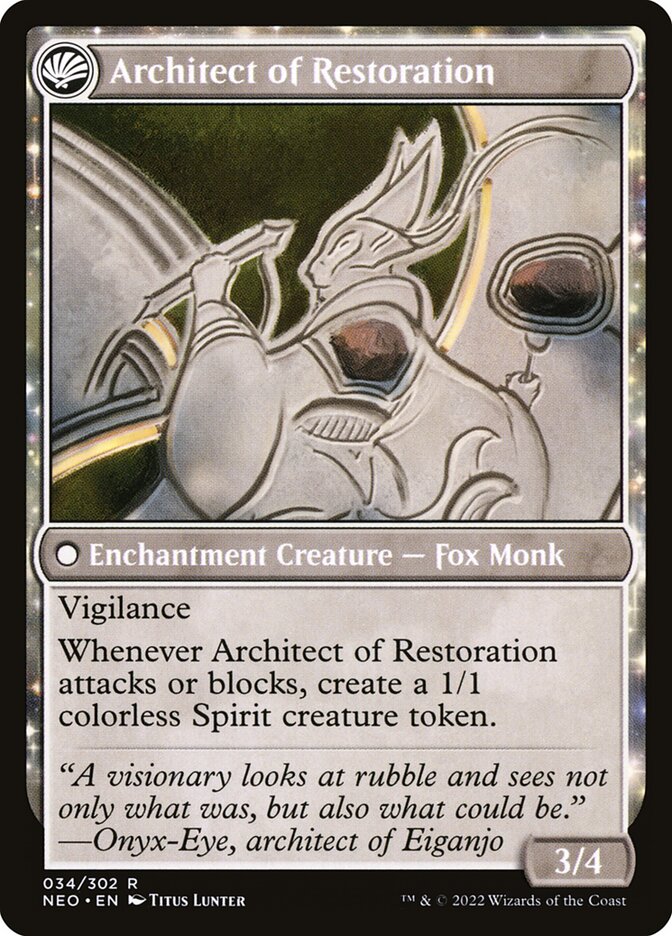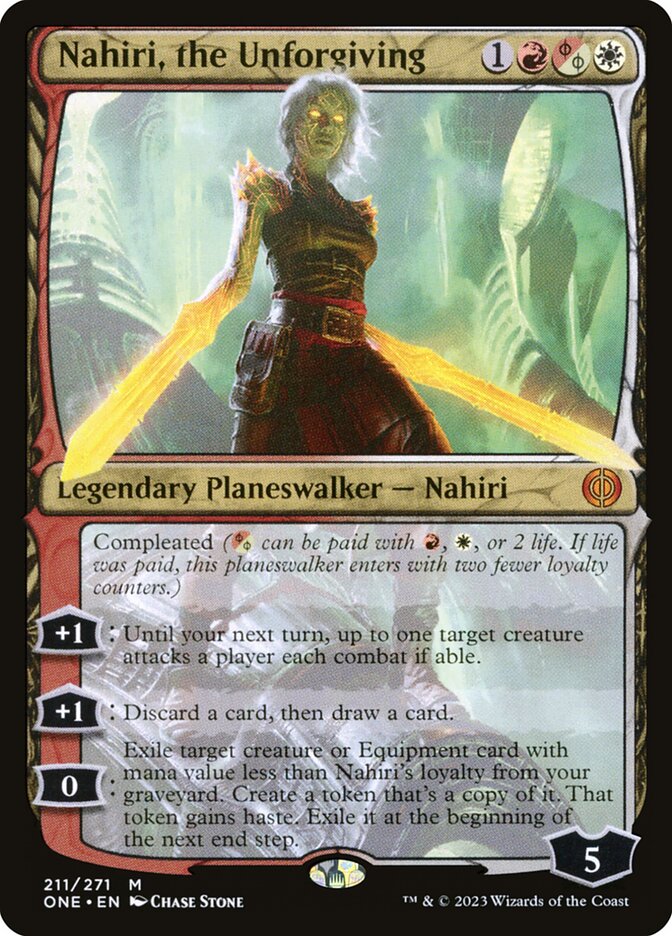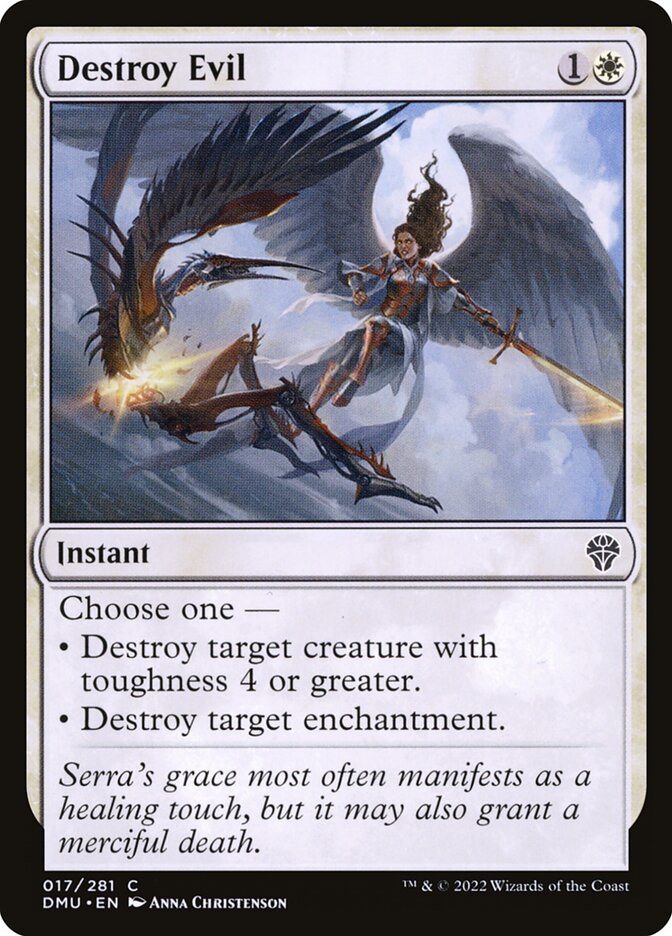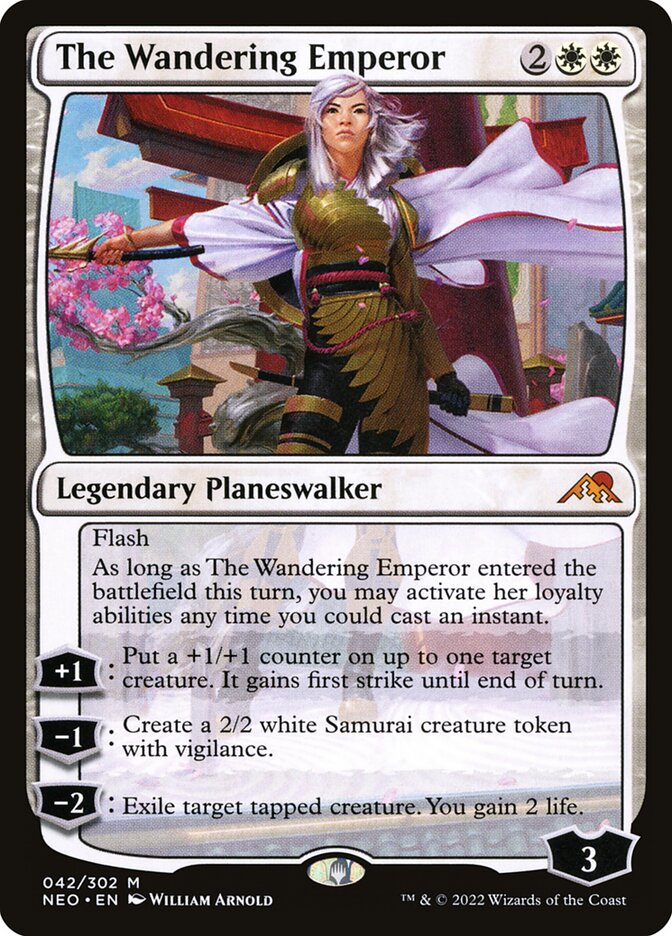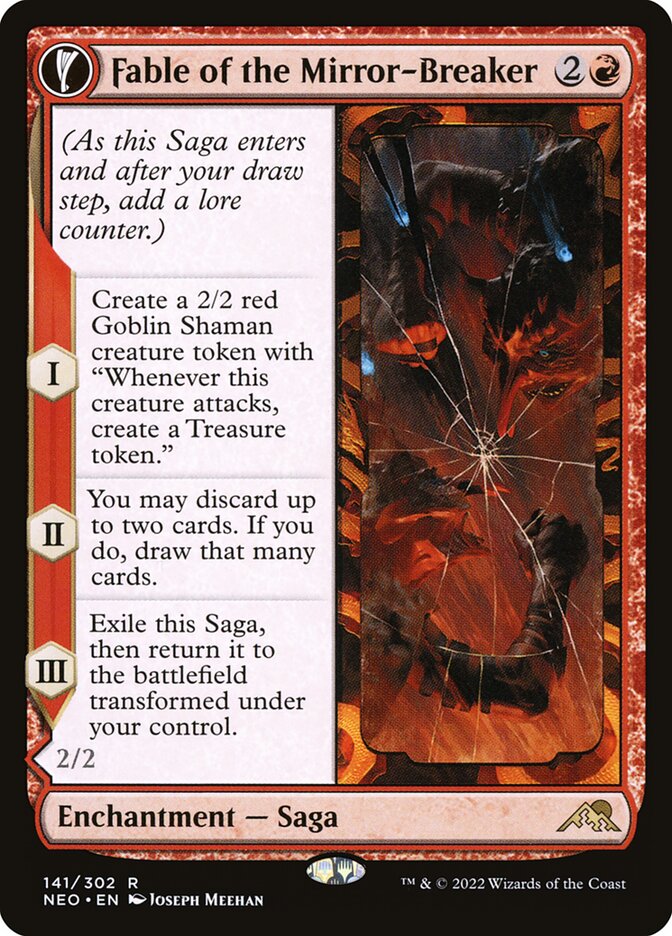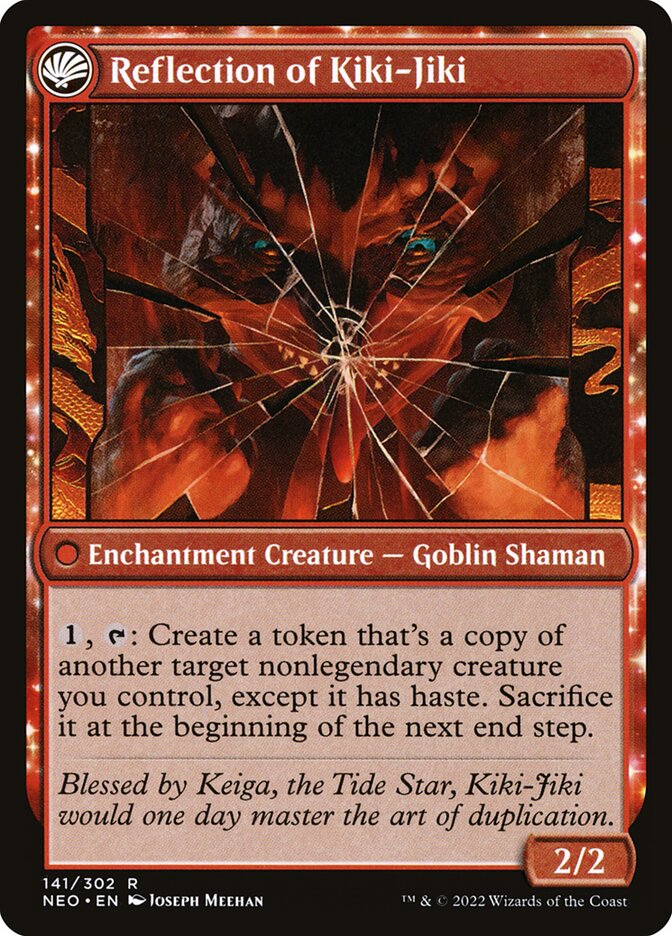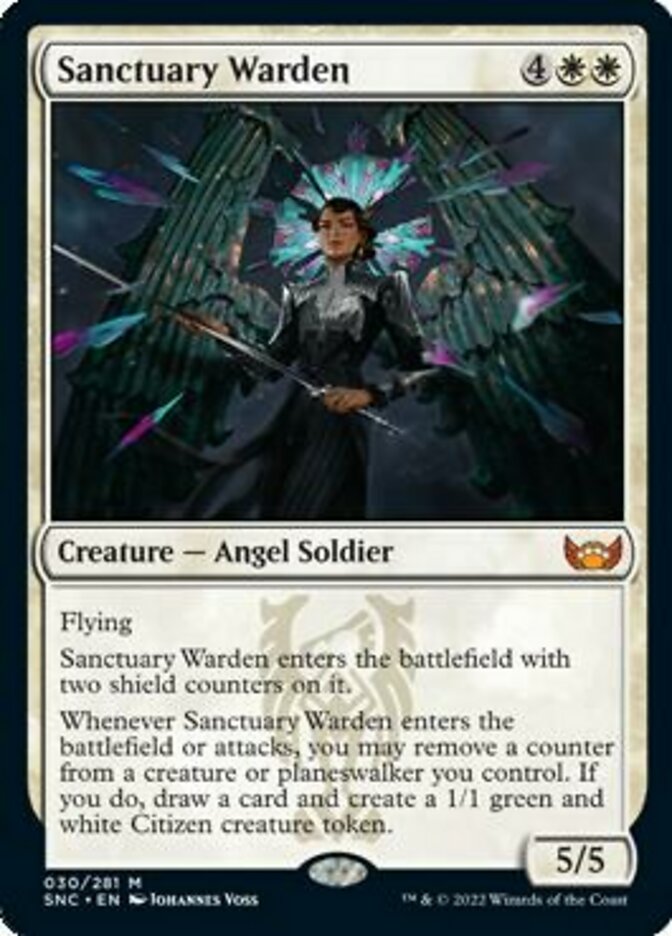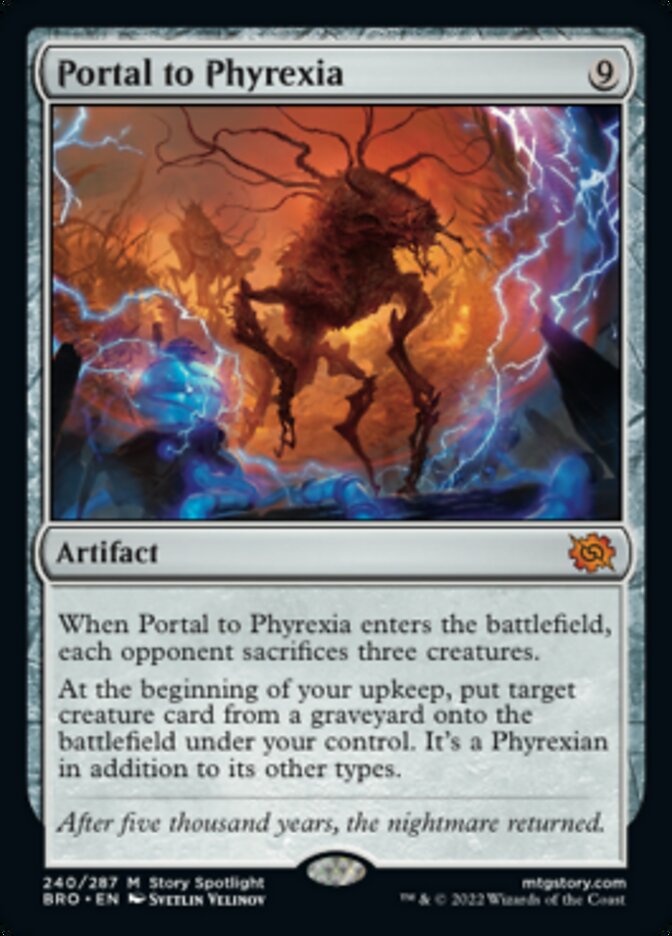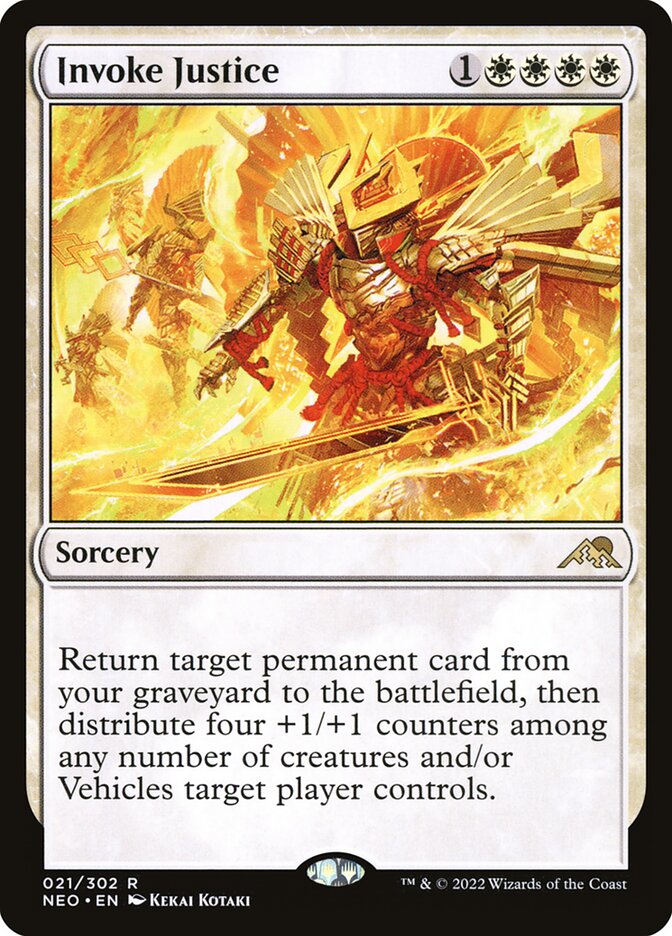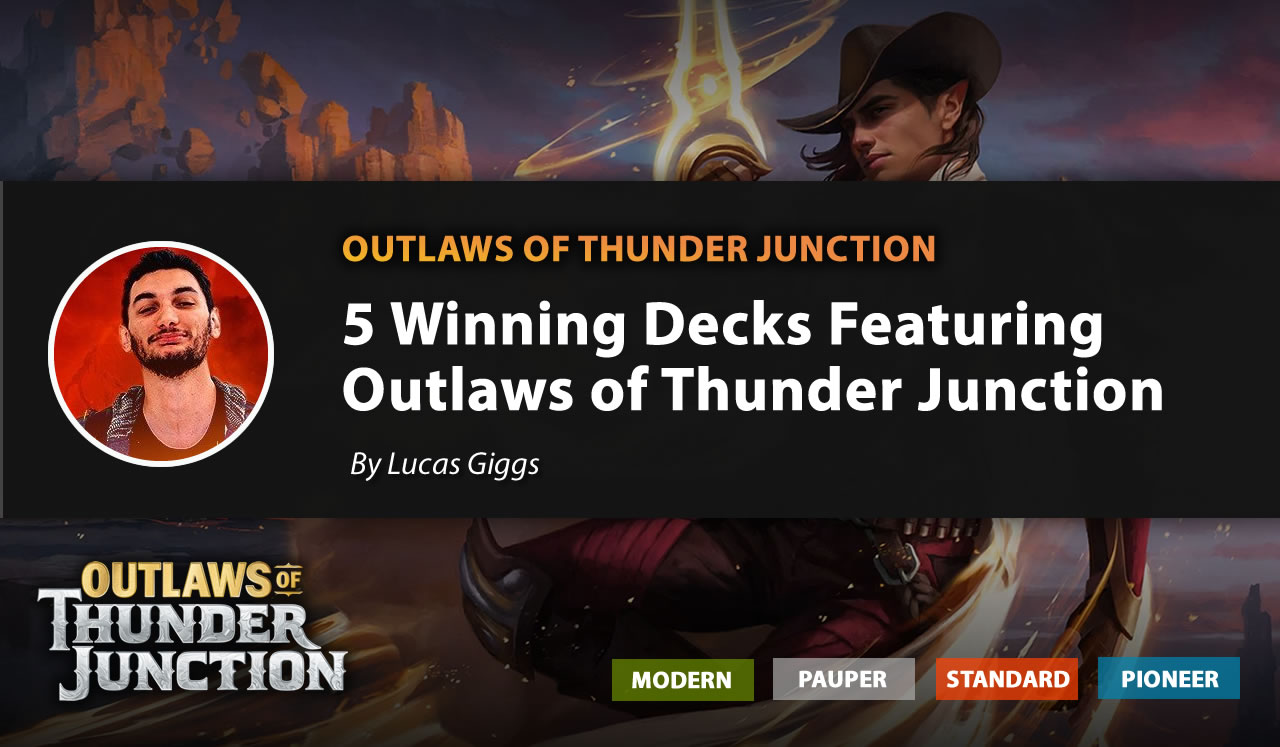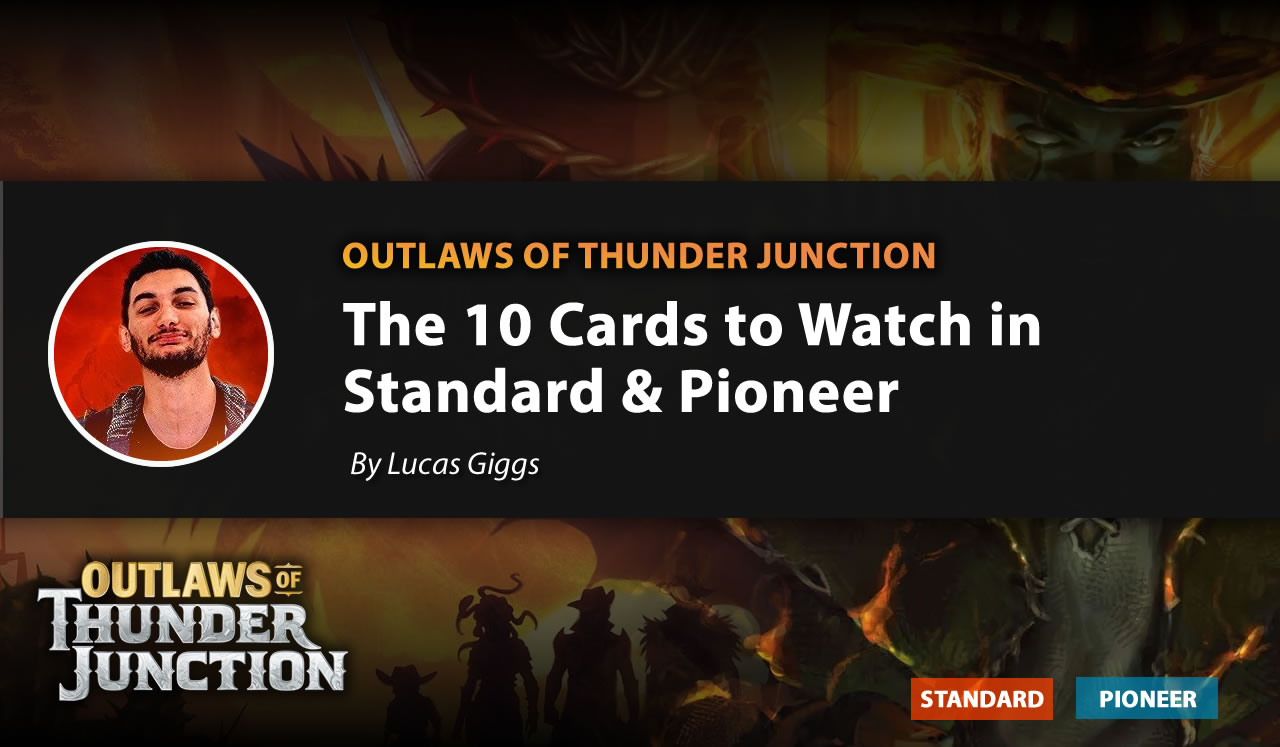Breaking Standard with Atraxa Reanimator: In-depth & Sideboard Guide
Quick intro
Greetings everyone, it's Alessandro back again!
This past weekend marked the release of Phyrexia: All Will Be One. For me, it is one of the most exciting and challenging weekends of the season, as all the competitive players and deckbuilders try to innovate and succeed with new strategies during the tournaments over the weekend.
As I'm currently focused on Standard, I decided to do an analysis of the expected metagame and the new cards that could potentially see play. I've kept my eye on some really interesting cards, but one in particular caught my attention, and I definitely wanted to find the perfect deck to play it: Atraxa, Grand Unifier.
It's not crazy to think that this card could break the format, as these types of cards usually don't see much play due to the mana base limitations that Standard has had historically. But this time is different; we have access to the Trilands and the Fast Lands, which make a ton of new strategies viable.
Designing Atraxa Reanimator
I began designing the deck the same day ONE was released on MTGO. As a base for the deck, I had in mind a deck that had taken a bit of the spotlight a couple of weeks prior: Naya Invoke Justice. From this base, I fine-tuned some aspects and weak points of the deck, cutting cards that I thought were inefficient and adding cards that may be more flexible and give us that extra edge to take our deck to the next level.
A KEY CARD: BIG SCORE
One of the most important cards in the deck and the one which gives us access to our bombs and win conditions is Big Score.
It's truly amazing the power it has in this type of strategy, and I thought it was strange it wasn't being played in the previous version of Naya Reanimator. Big Score gives us the chance to hardcast Atraxa on turn 5, without needing to reanimate it with Invoke Justice.
IMPROVING OUR GAMEPLAN
Generally, decks with a very high mana curve tend to not have good overall results, as they can do a lot but, at the same time, do nothing because they fail to find the right cards at the right time to make everything work.
To solve this problem, we needed to give our deck more angles of play, so that we don't lose games because we didn't do anything "because our plan didn't work out".
Improving the early game
The first issue with our deck was that our two and three drops were very weak. And opening hands without interaction in the early turns could be a huge problem.
I chose a line-up of 8 removal spells to improve the deck two-drops: 4 Abrade and 4 Cathartic Pyre —efficient removal spells that can give us a chance against aggressive decks or midrange decks that can put early pressure on the board. I also thought about playing two-drop creatures with Faithless Looting-like effects, but they didn't work out well during testing.
Fable, Restoration & Nahiri
Our three-mana line is Fable of the Mirror Breaker, Restoration of Eiganjo and Nahiri. Nahiri is a card with a lot of potential... but it needs more testing and I don't particularly like Restoration, but I think it's an optimal card in our strategy; perhaps playing more than two copies is too much.
Final touches: going big
Well, here's where the fun begins. Starting with our Drops 4, these are our victory conditions, and we have plenty of options and combinations to give us the victory in the majority of games.
My Current Version of the Deck
Now I will show you my current and updated version of the deck, and then we'll proceed with some tips and tricks!

| Creature [13] | ||
|---|---|---|
| 2 The Restoration of Eiganjo | $0.79 | |
| 4 Fable of the Mirror-Breaker | $21.99 | |
| 4 Sanctuary Warden | $0.99 | |
| 3 Atraxa, Grand Unifier | $29.99 | |
| Artifact [2] | ||
|---|---|---|
| 2 Portal to Phyrexia | $32.99 | |
| Instant [12] | ||
|---|---|---|
| 2 Cathartic Pyre | $0.39 | |
| 4 Abrade | $0.35 | |
| 4 Big Score | $1.79 | |
| 2 Destroy Evil | $1.99 | |
| Sorcery [4] | ||
|---|---|---|
| 4 Invoke Justice | $0.49 | |
| Planeswalker [4] | ||
|---|---|---|
| 2 The Wandering Emperor | $29.99 | |
| 1 The Eternal Wanderer | $2.49 | |
| 1 Nahiri, the Unforgiving | $0.99 | |
| Land [25] | ||
|---|---|---|
| 4 Battlefield Forge | $0.99 | |
| 7 Plains | $0.01 | |
| 3 Haunted Ridge | $8.99 | |
| 4 Sundown Pass | $12.99 | |
| 1 Shattered Sanctum | $21.99 | |
| 1 Eiganjo, Seat of the Empire | $9.99 | |
| 1 Sokenzan, Crucible of Defiance | $6.49 | |
| 4 Jetmir's Garden | $22.99 | |
| Sideboard [15] | ||
|---|---|---|
| 2 Farewell | $9.49 | |
| 2 The Wandering Emperor | $29.99 | |
| 4 Reckoner Bankbuster | $2.29 | |
| 2 Archangel of Wrath | $0.49 | |
| 2 Brotherhood's End | $7.99 | |
| 1 The Eternal Wanderer | $2.49 | |
| 2 Elesh Norn, Mother of Machines | $27.99 | |
 $130.38 Tix @cardhoarder
$130.38 Tix @cardhoarder
 $3.26 / Week @cardhoarder
$3.26 / Week @cardhoarder
 $525.77 @tcgplayer
$525.77 @tcgplayer
 $705.13 @cardkingdom
$705.13 @cardkingdom
Deck Breakdown
REMOVAL SPELLS
Removal spells are an essential piece in our deck, giving us the timing we need to execute our plan. I decided to split up the removals, giving me some added flexibility with Destroy Evil, which is a very interesting card in many of the scenarios I encountered.
The Wandering Emperor works in this deck largely as a removal spell, giving us that small edge to stabilize the board and buy us the time we need to reach our big drops.
THE CORE
These four cards are the cornerstone of our plan; they will provide us with the extra boost we need to reach our highest drops while also sculpting our hand.
Fable of the Mirror Breaker has everything our deck needs and is undoubtedly the most powerful card in Standard right now.
Big Score serves as a gateway to Invoke Justice and also as an entryway to Turn 5 Atraxa – Sanctuary Warden – Eternal Wanderer, or the ability to hard cast Portal to Phyrexia in slightly more advanced turns.
WIN CONDITIONS
Atraxa brings this deck to a very high level, allowing you to make a comeback even when your opponent has the board almost locked up, or if you cast her on Turn 5 or 6, she almost guarantees you the win.
Sanctuary Warden is one of my favorite cards in Standard, and it's a delight to be able to reanimate it in this deck. It's also very easy to cast it on Turn 6 or earlier, making it a pesky creature for opponents but quite beneficial for us, as it gives us the extra draw that our deck always needs.
Portal to Phyrexia is an interesting and highly important card in many occasions, but in others, it may not be as desirable...which makes it not one of my favorites. Playing two copies of it is fine, but I feel it's a card that I'm gradually going to be phasing out of my main deck.
Invoke Justice is the most important card in our deck, not only because of its ability to reanimate our permanents, but also because it can increase the power of creatures already on the board. Casting an Invoke and having it resolve is almost a surefire win in most situations.
Tips And Tricks
These two interactions are likely the most powerful in our deck, appearing frequently in the majority of the matches I have played.
INTERACTION 1: FABLE + JUSTICE

Turn 3:
- Cast Fable of the Mirror Breaker
Turn 4:
- Discard permanent with Fable
- Attack with Goblin token for treasure token
- Cast Invoke Justice to reanimate the previously discarded permanent
INTERACTION 2: BIG SCORE INTO ATRAXA

Turn 4:
- Cast Big Score, discard any card and get 2 treasure tokens
Turn 5:
- Play a untapped land and cast Atraxa for the win
After casting Big Score we also get ready to cast a T5 Eternal Wanderer or Sanctuary Warden, so there are plenty of possibilities!
Breaking Standard and winning the Standard Challenge
Atraxa Invoke seemed to be a deck that nobody had in mind for the new competitive Standard scene, there was a lot of hype surrounding the new card support for Mono White Midrange, and much of the competitive environment decided to go that route.
The primary goal in preparing for these early tournaments would definitely be to be comfortable against Mono-White and be prepared against the deck that many were planning to play.
I was also expecting some new midrange and aggressive decks, and that blue was not going to be very popular, since blue is more suitable to be played when the meta is already relatively stable…so building from counterspells is usually the most optimal way.
It all seemed to indicate that Atraxa Invoke would be one of the best options for our first competitive tournament; I speak in the plural because the deck was designed by my friend Jair Farjat, a very well-known Argentinian grinder with four appearances in the Pro Tour. We both used the same list of 75 cards and the result was incredible. Jair won the tournament without losing a single match 10-0 Score, and I lost in the semifinals to a soldier deck.
We were the only two lists of this style among all the tournament players, and it feels great to have gotten our deck choice right for this tournament. We've had missteps in card selection before, but this time it paid off.
Sideboard Guide
GRIXIS MIDRANGE

MONO WHITE MID
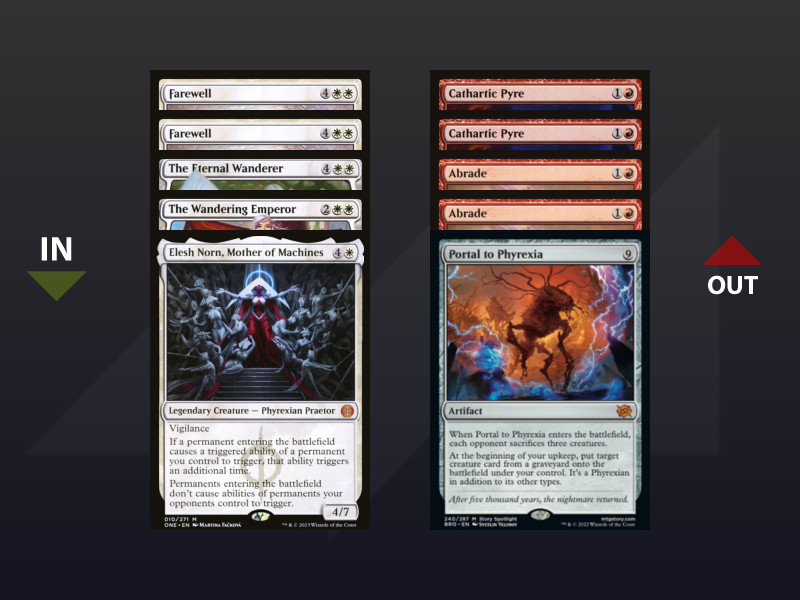
SOLDIERS

JUND MIDRANGE

MIRROR MATCH

Final words: Atraxa Invoke in the near future
Atraxa Invoke is a deck that has a certain level of complexity in terms of gameplay. The card combinations in each turn can be quite daunting, so you'll often have to take risks and give your opponent as little information as possible about what your next move is going to be. I think that's when you really make the leap with the deck and start to see the wins come in.
Atraxa Invoke is likely the ideal deck for taking on Mono White Midrange, boasting a high win rate and being well-positioned against many other non-counterspelling midrange decks.
We face tough matches against decks running counterspells, which will likely bring additional copies after sideboarding. We have a plan in our sideboard, but it's not highly effective, so I feel our chances of winning against blue decks are below 50%.
Facing aggressive decks can be a bit of a roll of the dice, but I don't think it's necessarily unfavorable. Aggressive decks can often put a lot of pressure on you quickly, making it difficult to turn the game around. However, there are also situations where we can find quick solutions with early removal and effectively neutralize any aggressive plan our opponent has.
The future of this deck will depend on the choice of decks in the competitive environment; if the meta shifts around Mono-White, Atraxa Invoke will be a very solid Tier 1, as decks with counterspells usually don't have a good matchup against Mono-White, so they would be played very little.
If the metagame solidifies with counterspell decks, Atraxa Invoke has few chances. In my experience, playing against these decks is a headache; they're not impossible to win against... but we need perfect play and a bit of luck.
And that's all. See you next time!
Sign Up for MTGDecks newsletter
You'll receive a weekly email with more articles like this.
MTGO Grinder
Alessandro Carvallo, better known as Cabezadebolo on MTGO, is a very well-known grinder and deckbuilder on MTGO. Carvallo has been playing Magic: The Gathering for many years and has been involved in the competitive scene since a long time.

